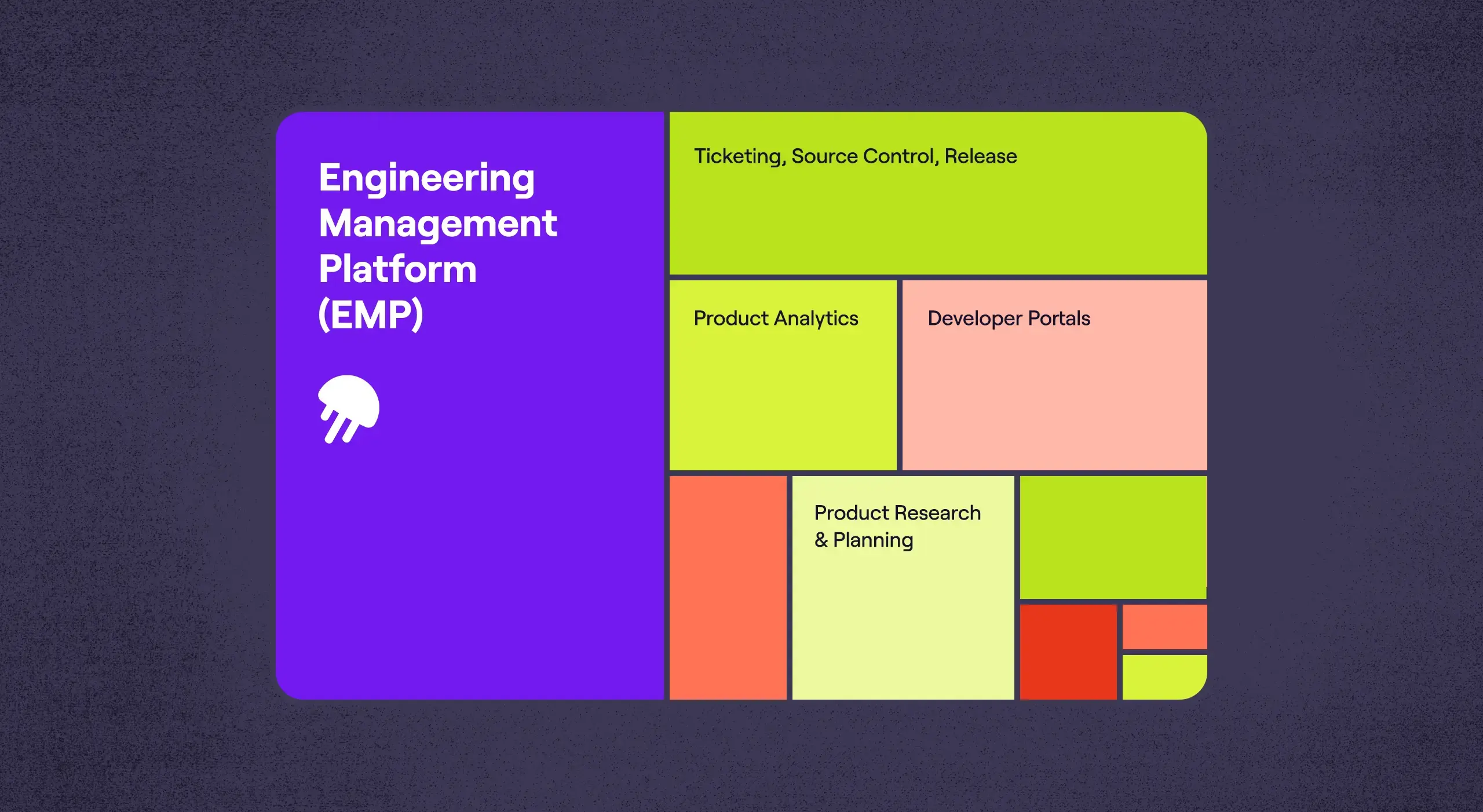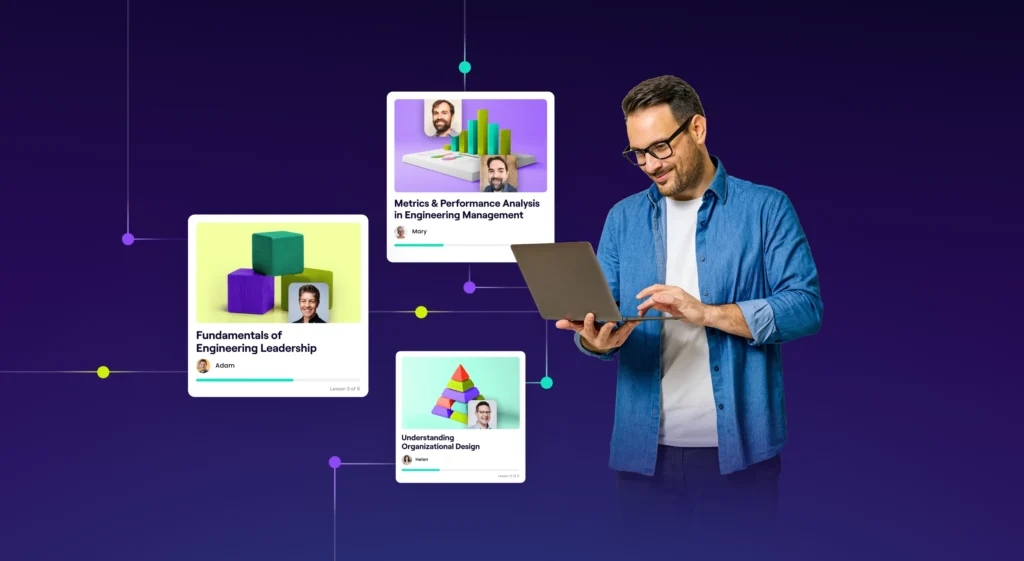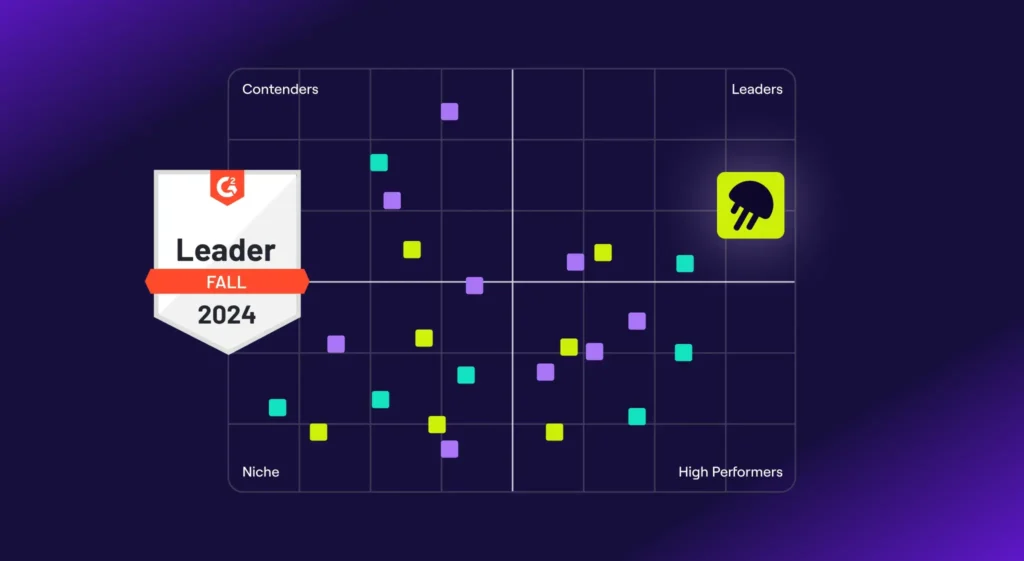Look Mom, we did something great!! Jellyfish was just named to the Forbes Next Billion-Dollar Start-Ups of 2023 List. There are 200+ people at Jellyfish who poured their heart and soul into putting us in the position we’re in today. This is a testament to the hard work of our team, our customers, and our investors that support us. We’re far from finished, and even better, we get to rep Boston.
It’s great to celebrate but, there’s still a discussion to be had about the moment that’s bigger than just our company. Forbes is subtly placing a bet on the Engineering Management Platform (EMP) category as a >1B$ opportunity. So the real question is: will this bet pay off?
If you think no, you’re selling your engineering teams short. It’s never been harder to lead software engineering teams, and unless we change soon, this problem is only going to get worse. Artificial Intelligence, hybrid/remote work, and macroeconomic conditions only fuel the fire of this teams complexity. We believe we are the answer to this complexity, becoming the operating system of software engineering orgs.
Back to the short answer: the management of engineering teams is a multi-billion-dollar software category.
A quick history lesson on engineering leadership
Leading software engineering teams has never been easy, even during the days of Waterfall and Fortran, I’ll stop there because I’m dating myself…
While Cloud, Agile, and DevOps advanced how we manage technical teams and their processes, other core challenges remained untouched. Engineering is still largely seen as a “black box.” It’s not unlike how our friends in sales were seen before Salesforce and the rise of CRM. Why is it that executive updates are still largely based on anecdotal feedback? Why is it that measures of success are still less clear than quota attainment and revenue? How does Engineering communicate impact?
To quote the great Bob Dylan, “The times, they are a-changin’.” Until this point, anecdotal updates from engineering leaders might have been acceptable for executive leadership. But we’re about to enter a whole different chapter of the software age, influenced by one of the biggest disruptive forces in tech in recent years: artificial intelligence.
Post GenAI and the software team of 2030
It’s easy to get caught up in the AI hype train. Still, behind all the marketing, it’s a powerful disruptive technology that’s going to change the way software teams organize, innovate, and operate. Leaders need to evolve or risk being left behind, evolve or die. The ceiling for how much code your team can output is now shattered. The scope and the speed at which you can operate have changed drastically, and it’s not a stretch to say that most software developers’ jobs will evolve to become more managerial.
In short, the software engineering process is about to get a lot more chaotic, with today’s current DevOps approach looking like the Waterfall model of yesterday. If engineering was a black box before, now it could become a black hole. The software will be writing software, and operating at this scale requires a level of insight beyond anecdotal feedback (guessing) from your team leads. The software team 2023 will behave differently, and it will require us to update the engineering leadership playbook.
The Multi-Billion $ opportunity: the Operating System of the Post-GenAI Age
What’s important to the software team of 2030 is becoming abundantly clear. In a world of code output, code quality will create differentiated customer experiences. As engineering productivity increases, engineering impact will become your competitive differentiator. Innovation becomes the team’s main focus in a world where AI can focus on repetitive tasks. And in a world where your developers’ tasks are freed up to focus on other work, using that time to focus on business objectives will be the standard of successful engineering operations.
My mom is proud and I’m proud of the engineer leaders already embracing the future. Our world is changing, and it requires a new OS that shifts how we communicate our teams’ impact on the business. Do I believe EMPs are the next $B category? Yes, but add a couple of zeros at the end.







